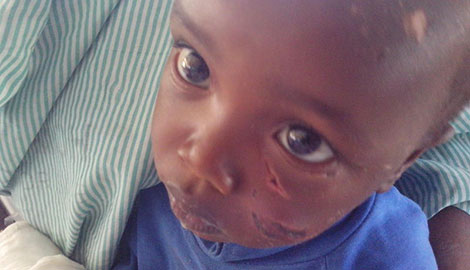×
The Standard e-Paper
Smart Minds Choose Us
 |
| Namaita Lengoloya’s chidren are also nursing injuries sustained from the attack. |
Laikipia, Kenya: A brave woman who fought off a hyena, which invaded her home in Laikipia County recently, is fighting another battle.